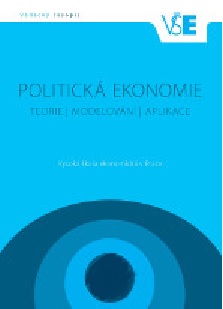Mikroekonomická analýza malé důchodové reformy v České republice (tzv. I. pilíř)
A Microeconomic Analysis of Small Pension Reform in the Czech Republic (the So-Called First Pillar)
Author(s): Jiří VopátekSubject(s): Social Sciences, Economy
Published by: Vysoká škola ekonomická v Praze
Keywords: continuous pension system; solidarity; equivalence; small pension reform; reduction limit; replacement ratio; minimum salary; average salary
Summary/Abstract: The paper deals with the so-called small pension reform in the Czech Republic in response to the findings of the Constitutional Court Pl. US 8/07. Through microeconomic modelling of the situation with the help of valid retro data, the development of solidarity and equivalence in the ongoing pension system is analysed in detail, both before and after the so-called small pension reform of basic pension benefits carried out from 2005–2016 in the Czech Republic. The analytical calculations are focused on properly calculating retirement in accordance with Act No. 155/1995 Coll. on pension insurance, as amended, from the perspective of different situations of typified individuals with different incomes (five) and their individual replacement ratio from the perspective of the Czech pension system, which is funded on an ongoing basis. The results quantify the individual replacement rates and are analysed from the perspective of model situations where, despite the enactment of these small pension reform, a high individual replacement ratio still remains for lowincome individuals compared with high-income individuals. The analysis shows that the lower the pre-retirement income is, the higher the individual pension benefit itself is in comparison with preretirement higher income, and the more it manifests itself in a higher rate of solidarity with the higher individual replacement ratio. Conversely, with an increase in the pre-retirement pension, the benefit income rises, but increases more slowly in relation to the pre-retirement income and the individual replacement ratio decreases significantly. Low-income individuals have a tendency to increase the nationwide replacement rate, while high-income individuals tend to reduce it. In conclusion, the paper also points out the difficulty of achieving ongoing financial sustainability of the pension system in the Czech Republic, where a considerable increase in the so-called awaited dependency ratio (per 100 people) is expected from the 2015 value of 26.6 to 47.8 in 2080 (ceteris paribus).
Journal: Politická ekonomie
- Issue Year: 65/2017
- Issue No: 1
- Page Range: 96-118
- Page Count: 23
- Language: Czech

